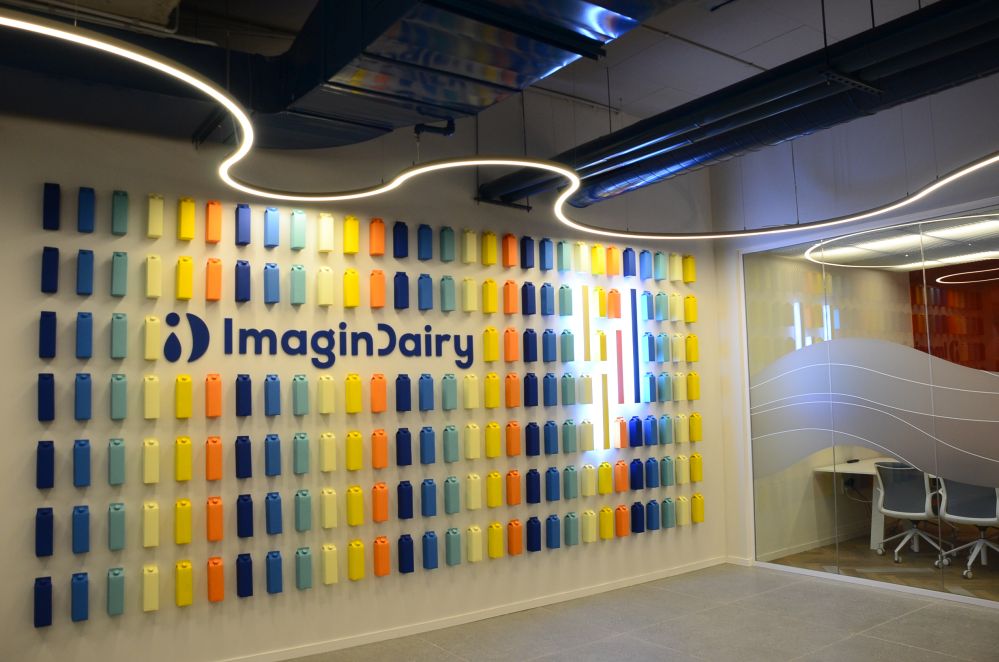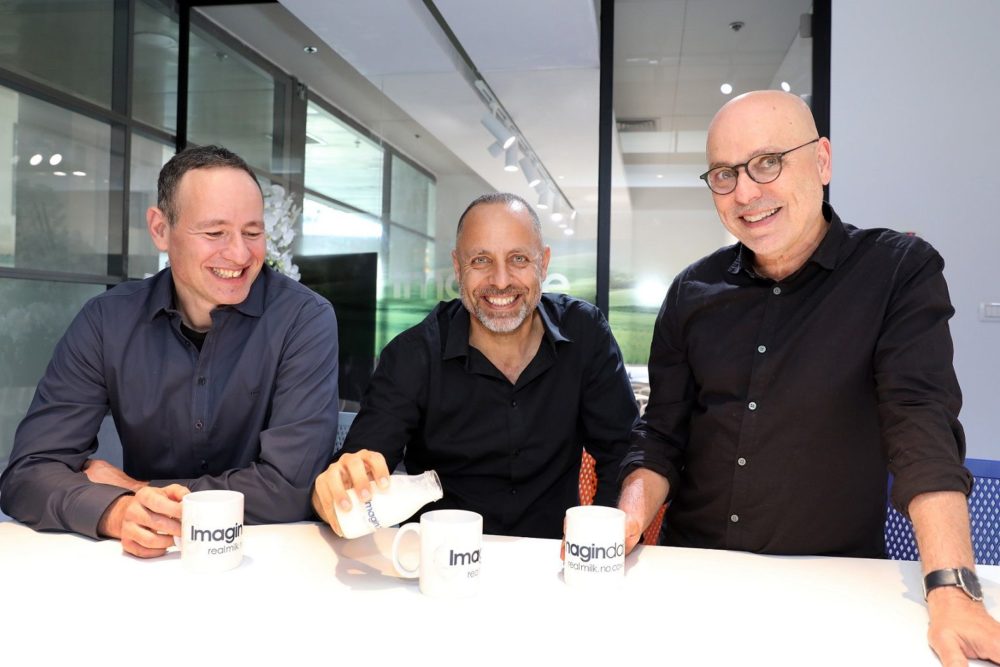Israeli startup Imagindairy has acquired industrial-scale precision fermentation production lines at an undisclosed location “in close proximity to Israel” and now expects products containing its animal-free whey protein to launch in the US this year.
The production lines and associated downstream processing capability at the undisclosed site will give Imagindairy access to 100,000 liters of fermentation capacity, with the opportunity to triple this volume in 1-2 years, said the startup, which has just received a “no questions” letter from the FDA affirming the GRAS (Generally Recognized as Safe) status of its whey (produced by microbes instead of cows).
“Having just entered the landscape three years ago, this achievement is a big step forward for us,” said cofounder Dr. Eyal Afergan. “This will enable our customers to put animal-free dairy products on-shelf at cost parity to traditional dairy, without compromising on quality.
“It’s a substantial breakthrough and important step that will allow us to support mass-market adoption, transition to an industrial company, and speed up the development of other milk proteins.”
He did not say how much the kit cost or how the acquisition had been funded, but told AgFunderNews: “These facilities don’t have to cost hundreds of millions. We’re not operating a pharmaceutical facility.”
The drivers for animal-free dairy
Founded in 2020 by Dr. Arie Abo, Dr. Tamir Tuller, and Dr. Eyal Afergan, Imagindairy has raised just over $30 million to date from backers including Danone, significantly less than some other players in the nascent animal-free dairy space (notably, animal-free dairy pioneer Perfect Day has raised almost $840 million). It first plans to bring the whey protein beta-lactoglobulin to the US market but is also working on a range of other milk proteins.
Imagindairy has a customer pipeline spanning small companies keen to tap into the ‘animal-free dairy’ message to multinationals looking to meet ESG goals by replacing some whey from cows with whey made by microbes, which has a far lower carbon footprint, said Dr. Afergan.
“Some of our potential customers have net zero goals, and they’re not going to meet them unless they address the emissions generated by cows,” added Dr. Afergan, who secured a minority investment from Danone’s corporate venture arm last year and is working with the dairy giant on “strategic collaboration projects.”
“Imagindairy has an inherent culture of capital efficiency and achieving more with less.” Jonathan Berger, CEO, The Kitchen FoodTech Hub

The advantages of in-house production
Operating its own production lines provides Imagindairy with several advantages, claimed Dr. Afergan. “One is flexibility. For very efficient R&D, to accelerate production and development, having your own production capacity makes a huge difference, because things do not always work in the same way at lab-, pilot-, and industrial-scale, so having our own large-scale lines means we can iterate fast.”
He added: “Most companies secure capacity with CMOs [contract manufacturing organizations], but there are two main disadvantages. One, the lead times… you need to wait at least 10 months to a year to secure access to production slots, and second, it costs a lot. We are doing some adjustments [to the newly-acquired equipment], but it’s suitable for our process.”
Machine learning
To those querying the unit economics of producing dairy proteins from fermentation, he said Imagindairy’s use of machine learning to develop an optimal strain of Aspergillus Oryzae (the host microorganism it is using to express beta-lactoglobulin) helped make the numbers add up.
“We’ve integrated AI machine learning technologies and very advanced molecular biology to get a more and more efficient strain that produces more and more protein. We have very good unit economics that mean we are already very competitive.”
He added: “Filamentous fungi are able to produce very high production yields compared to other microbial species such as yeast or bacteria,” although he did not share how many grams per liter Imagindairy was able to produce. New Zealand startup Daisy Lab, for example, this week claimed it had achieve 10g beta lactoglobulin per liter of growth medium although it is not yet operating at industrial scale, so it’s unclear whether this number can be replicated in a larger-scale operation.
“We also like the fact that Aspergillus Oryzae [kōji mold] is part of the food chain, that people are familiar with it [for example to ferment soybeans for making soy sauce and miso],” said Afergan.
When it comes to terminology (what do you call dairy protein made without cows?), he said: “I think we are still looking for the right language, and this is why it’s so important to work with our customers, because they are much closer to the consumer than us.”
Microbes, not cows: Animal-free dairy
But why make animal-free dairy proteins in the first place?
According to advocates, making dairy products without cows offers the best of both worlds: more sustainable and ethical products that deliver the nutrition and functionality of ‘real’ dairy.
As for the market opportunity for animal-free dairy, it’s early days, and key stakeholders are still exploring how best to communicate the concept to consumers and how to navigate the regulatory pathway in some markets.
Precision fermentation players have also struggled to scale up in-house as VC funds have proved reluctant to fund large-scale capex projects and banks have been unwilling to finance technology that has not yet been proven in the marketplace. Israeli animal-free dairy startup Remilk, meanwhile, has put plans to build “the world’s largest” precision fermentation facility in Denmark on ice and is instead scaling with a contract manufacturer in Europe.
California-based animal-free dairy co Perfect Day recently claimed it was on the cusp of announcing a partnership with a leading CPG (consumer packaged goods) company, and claims it is finalizing plans to build some large-scale production capacity in-house: “We’re still working entirely with third parties, but we have a couple of different options that we’re evaluating to be able to get to that larger scale… to really unlock much larger capacity than is possible with contract manufacturers.”





